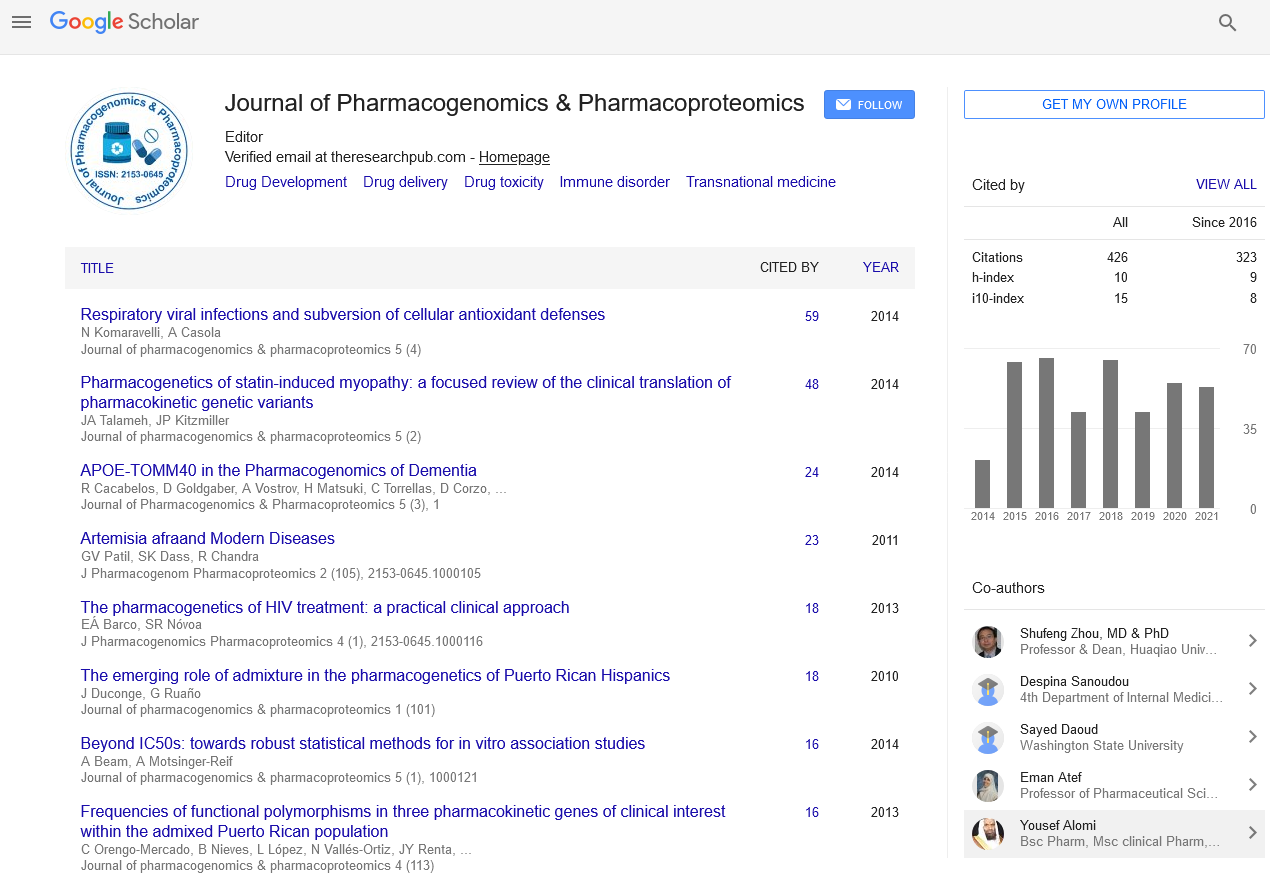Indexed In
- Open J Gate
- Genamics JournalSeek
- Academic Keys
- JournalTOCs
- ResearchBible
- Electronic Journals Library
- RefSeek
- Hamdard University
- EBSCO A-Z
- OCLC- WorldCat
- Proquest Summons
- SWB online catalog
- Virtual Library of Biology (vifabio)
- Publons
- MIAR
- Euro Pub
- Google Scholar
Useful Links
Share This Page
Journal Flyer

Open Access Journals
- Agri and Aquaculture
- Biochemistry
- Bioinformatics & Systems Biology
- Business & Management
- Chemistry
- Clinical Sciences
- Engineering
- Food & Nutrition
- General Science
- Genetics & Molecular Biology
- Immunology & Microbiology
- Medical Sciences
- Neuroscience & Psychology
- Nursing & Health Care
- Pharmaceutical Sciences
Explaining dietary intake, physical activity, sedentary behaviours and hypothesized mediators in child, adolescent and adults
2nd International Conference on Predictive, Preventive and Personalized Medicine & Molecular Diagnostics
November 03-05, 2014 Embassy Suites Las Vegas, USA
Ana Carolina Barco Leme
Accepted Abstracts: J Pharmacogenomics Pharmacoproteomics
Abstract:
Poor food choices and sedentary behaviours are considered to be the major contributors to obesity epidemic. Obesity is at epidemic proportions in Brazil and is continuing to increase nationally and internationally. There is irrefutable evidence that obesity has short and long term physiological and psychological consequences for all ages. Social and mental health is worse amongst obese individuals compared with those who have a healthy weight and obesity is a significant predictor for non-communicable diseases. Health behaviours theories provide systematic sets of hypothetical constructs, definitions, and propositions that explain or predict health behaviours change by illustrating the relationships between their key concepts. Those theories are helpful to explain the individual?s health behaviours and evidences suggests that theoretically-based interventions are more effective in changing behaviours than non-theoretically approaches. Studies addressing important factors of health behaviours tend to focus on conceptual theories, for example, several investigations have sought into correlates of consumption of specific foods and physical activities in the individuals. Nonetheless, few studies have tried to explain and identify significant predictors of behaviour change, which can provide stronger evidence of casual relationships of theoretical mediators with dietary and physical activity behaviours. Furthermore, little attention has been devoted of action theories (how to affect mediators of health behaviours), but this information is at utmost importance for the development of effective interventions. Finally, to better understand the explanations for the limited success of current health behavioural interventions it is important to test, using adequate strategies, the validity of theories that inform and guide interventions.
Biography :
Ana Carolina Barco Leme has completed her degree in Nutrition and Dietetics at the age 21, Master degree at the age of 26 from School of Public Health, University of Sao Paulo and concluded with an internship programme at the University of Newcastle, Australia. She is a PhD candidate from School of Public Health, University of Sao Paulo. She has published 14 papers and abstracts in reputed journals.


